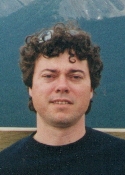The Paradox of the Clocks in the Canaries
von Doug Marett
The Paradox of the Clocks in the Canaries
Doug Marett
In: Conspiracy of Light, 2010
Einstein’s general theory of relativity predicts that the rate of time passage becomes slower as one approaches the center of a massive object such as the earth. Far from the massive body, clocks run faster. He believed this effect is manifested in accelerated reference frames by virtue of the equivalence principle. Does time really pass at different rates at different altitudes? Let us consider a thought experiment to test this idea.
Jack and Jill are two fraternal twins living on the island of Tenerife in the Canary Islands of Spain. They both live in the sea-side town of Puerto de la Cruz, from which the peak of Pico del Teide, a mountain of 3718 metres, is visible during fair weather. If Jack were to go up mount Pico del Teide for 10 years, and Jill were to stay at sea level, the clock carried by Jack would advance ahead by 0.13 ms with respect to a clock with Jill at sea level, due to gravitational time dilation. According to this version of the twin paradox, if Jack returns to Jill after 10 years, the moment he arrives at sea level to meet Jill, more time has elapsed (0.13 ms) for Jack and he is thereby older than Jill. However, if Jill goes up the mountain after 10 years, what time does she read on Jack’s clock? This question is not straightforward, since we would assume that if time passes faster at the top of the mountain, the mountain clock would be ahead by 0.13 ms, just like when Jack comes down the mountain.
.
- 31. August 2013
- Artikel
